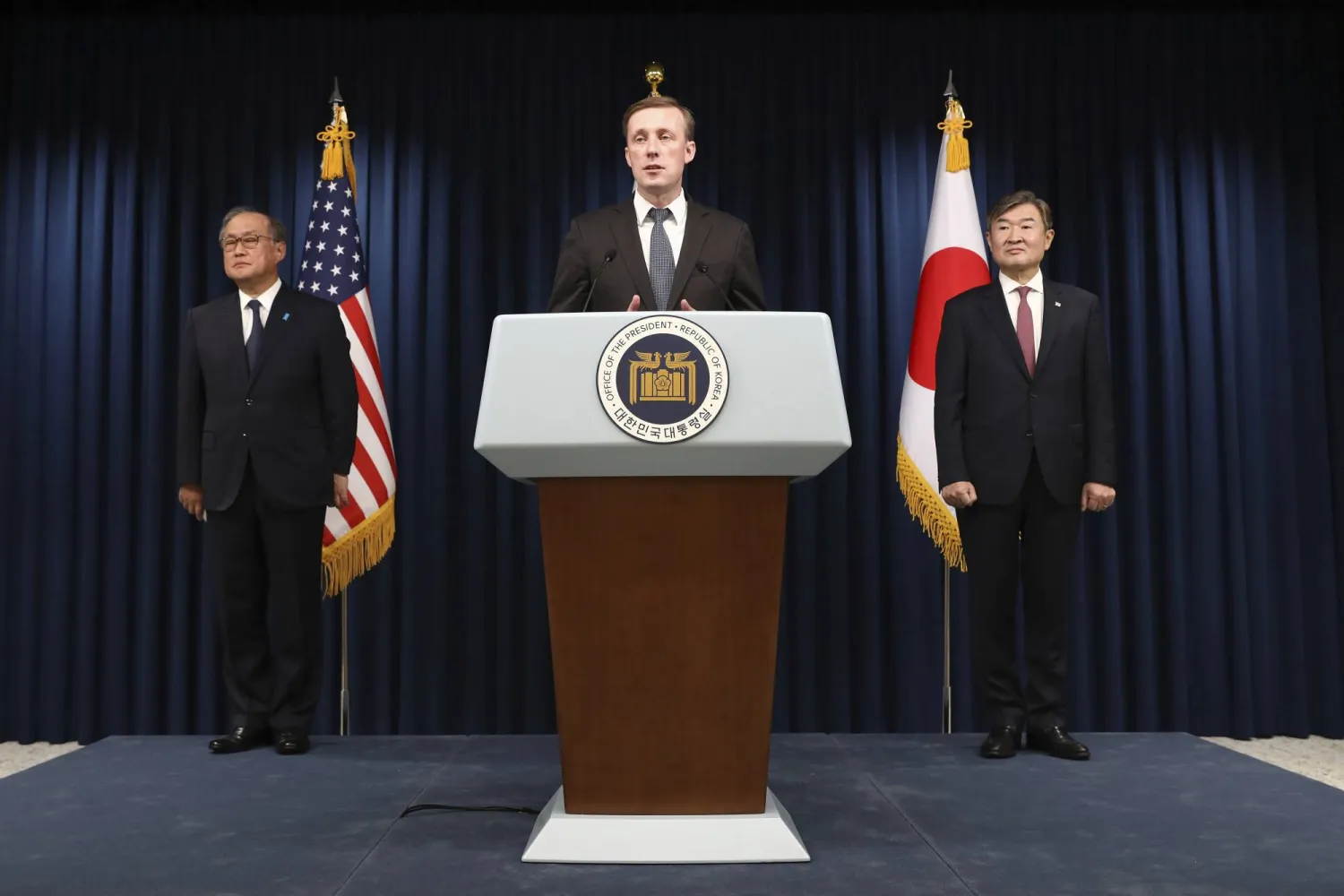The United States, South Korea and Japan have agreed on new initiatives to respond to North Korea's threats in cyberspace, including satellite launches and cryptocurrency abuses, White House National Security Adviser Jake Sullivan said on Saturday.
The national security advisers of the United States, South Korea and Japan met in Seoul on Saturday as Pyongyang warned that it would deploy more spy satellites.
Sullivan said the meeting followed up on commitments set forth at the Camp David trilateral summit hosted by US President Joe Biden in August, where leaders of the three allies pledged to deepen security and economic cooperation.
"We've also launched new trilateral initiatives to counter the threats posed by the DPRK, from its cybercrime and cryptocurrency money laundering to its reckless space and ballistic missile tests," Sullivan told reporters, referring to North Korea by its official name, the Democratic People's Republic of Korea (DPRK).
The allies' coordinated efforts would also target potential threats of economic coercion, Reuters quoted Sullivan as saying, and they have finalized work on a supply chain early warning system, agreed to at Camp David, in critical minerals and rechargeable batteries.
The Biden administration held the meeting at Camp David with South Korean President Yoon Suk Yeol and Japanese Prime Minister Fumio Kishida to project unity in the face of China's growing power and nuclear threats from North Korea.
North Korean state media said on Saturday that Pyongyang was determined to launch more spy satellites soon, calling space development part of its right to defend itself.
After talks with Sullivan and Japan's Takeo Akiba, South Korean national security adviser Cho Tae-yong said the three had also exchanged ideas on Ukraine and Middle East issues.
US, SKorea and Japan to Step Up Actions on NKorean Cyberthreats

US National Security Advisor Jake Sullivan, center, speaks at a joint news conference with South Korea's National Security Adviser Cho Tae-yong, right, and Japan's National Security Secretariat Secretary-General Takeo Akiba at the presidential office, Saturday, Dec. 9, 2023, in Seoul, South Korea. (Chung Sung-Jun/Pool Photo via AP)

US, SKorea and Japan to Step Up Actions on NKorean Cyberthreats

US National Security Advisor Jake Sullivan, center, speaks at a joint news conference with South Korea's National Security Adviser Cho Tae-yong, right, and Japan's National Security Secretariat Secretary-General Takeo Akiba at the presidential office, Saturday, Dec. 9, 2023, in Seoul, South Korea. (Chung Sung-Jun/Pool Photo via AP)
لم تشترك بعد
انشئ حساباً خاصاً بك لتحصل على أخبار مخصصة لك ولتتمتع بخاصية حفظ المقالات وتتلقى نشراتنا البريدية المتنوعة







